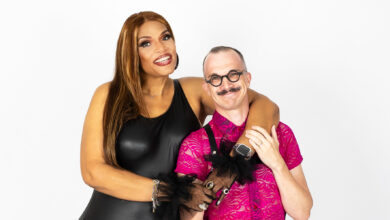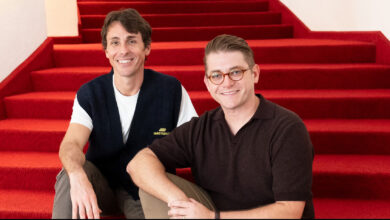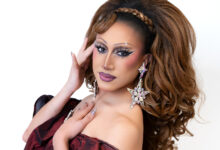
An Open Letter to Sheriff-elect Ed Gonzalez
By Josh Inocéncio
Dear Mr. Sheriff-elect Ed Gonzalez,
On behalf of the LGBT community here in Houston, I request that you, upon taking office in January, reestablish an LGBT liaison and advisory committee as well as freshly re-enforce the Harris County sheriff’s office LGBT policies concerning sensitivity training.
Under former Sheriff Adrian García, the Houston LGBT community gained an ally within the police department, as García marched in the Pride parade and appointed then-Major Debra Schmidt to serve as a liaison between the sheriff’s office and The Montrose Center. However, García’s successor, outgoing Sheriff Ron Hickman, liquidated the liaison (demoting Schmidt to captain), refused to march alongside community activists and local politicians in the Pride parade, and distanced himself from the LGBT community altogether with his hard embrace of Tea Party fundraisers and other conservative organizations in Harris County. Hickman did shrewdly keep intact protections for transgender inmates, but his acknowledgement of LGBT issues didn’t extend beyond the jails. At the helm of the most diverse city and one of the largest counties in the nation, we expect a sheriff to be inclusive of all groups, not a spare few.
And now we have that opportunity with you, district attorney-elect Kim Ogg, Houston Police Chief Art Acevedo, and Mayor Sylvester Turner—all officials who envision an inclusive Houston that works for everyone.
But I hope you institute a friendlier relationship with the local LGBT community not just to score political notches and votes four years from now, but out of an honest drive to uplift and protect all demographics in Harris County. While relations between law enforcement and the LGBT community have improved since, say, the 1980s when cops were disproportionately hunting down gay men, the historic tensions between LGBT people and the police have scarcely evaporated. Aside from the casual homophobia that many gays and lesbians fear when encountering the police through traffic stops or public gatherings, transgender people of color disproportionately experience discrimination, and even brutality, at the hands of police. And we’re not the only ones—many queer Houstonians have multiple marginalized identities that inform our activism for various demographics.
As Houston resident Eesha Pandit, a Salon writer and board co-president of National Network of Abortion Funds, points out, “The LGBTQ community is very diverse. As a queer person of color, one of the issues I care about most is racial justice. This means that I care about issues like detentions and deportations of our immigrant community…. Queer and trans immigrants are often more vulnerable because they are subject to more violence, both at the hands of police but also while incarcerated. I’m also hoping that our new sheriff takes into account the history of over-policing communities of color, the black community in particular. Queer Houstonians of color, like myself, care about a whole host of issues, all the way from equal opportunities and antidiscrimination to racial justice and ending violence against women.”
Besides carrying an awareness of past police antagonism toward queer people, many of us are cruxes upon which diverse identities meet. We are queer, yes, and we are women, Latina/os, blacks, Asians, disabled, Muslims, and what have you. And while many of us are grateful for the men and women in uniform out there protecting us at Pride parades, our anxieties with law enforcement are not unfounded nor are they vacuous, but rooted in a firm history of marginalization. This is why sensitivity training is key: if police cadets, young and old, aren’t aware of historical conflicts, how can we expect constructive interactions?”
And with community and police tensions still firing up, the need for liaisons and advisory committees is probably even more crucial than when García first established them. David Daniel Burch, a gay Harris County resident and recent graduate from Sam Houston State University, says, “A liaison should be implemented in assisting in encouragement of understanding for the stigma perceived by their community as it relates to being open and honest with law enforcement. If the community does not feel secure in being truthful with law enforcement, the act of protecting and serving becomes even more difficult.”
Outside of direct contact with cops, it is crucial that LGBT people have an ally with law enforcement agencies since we are more likely to suffer hate crimes than any other demographic in the United States. Given these unsteady times with allegations of hateful acts toward LGBT people on the rise in the wake of Donald J. Trump’s election, we need to know we have a liaison with the sheriff’s office, which will increase our willingness to report hate crimes and other issues, such as sexual assault.
Ultimately, the needs of our community are the same as anyone else’s; we just want to know that the police are protecting and serving us, too. Our call is not for special rights, but an acknowledgement of history and proactive steps to redress decades of inequity.
As Michelle Yu, a pre-pharmacy major at the University of Houston, succinctly says, “There is a lot to keep in mind for LGBT community, but in the end, we would like to be considered as part of the community and be treated well by the police force. We want to know our rights and voices are protected without feeling ostracized by the police.”










